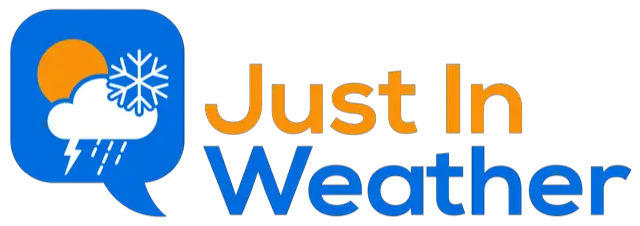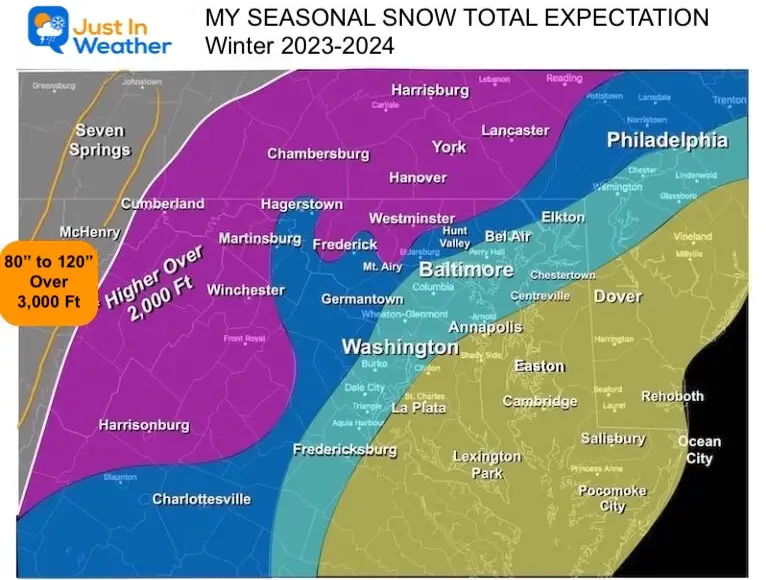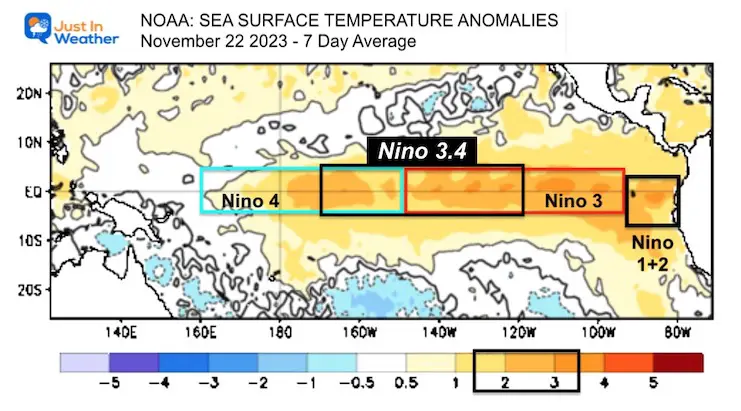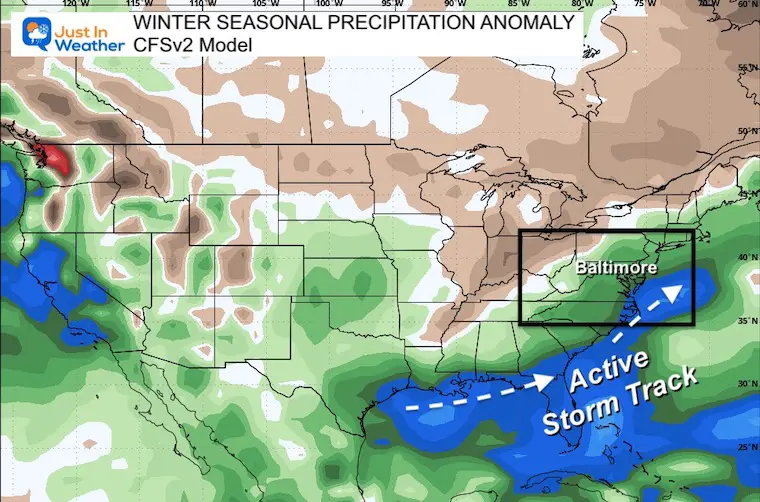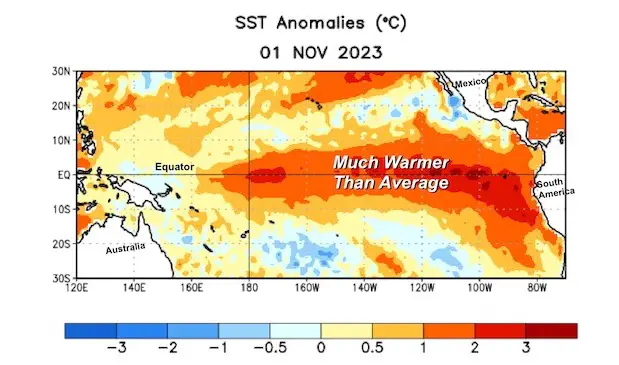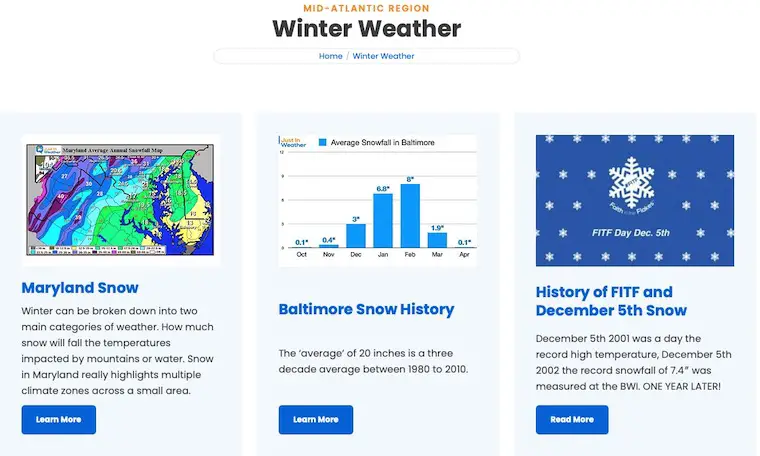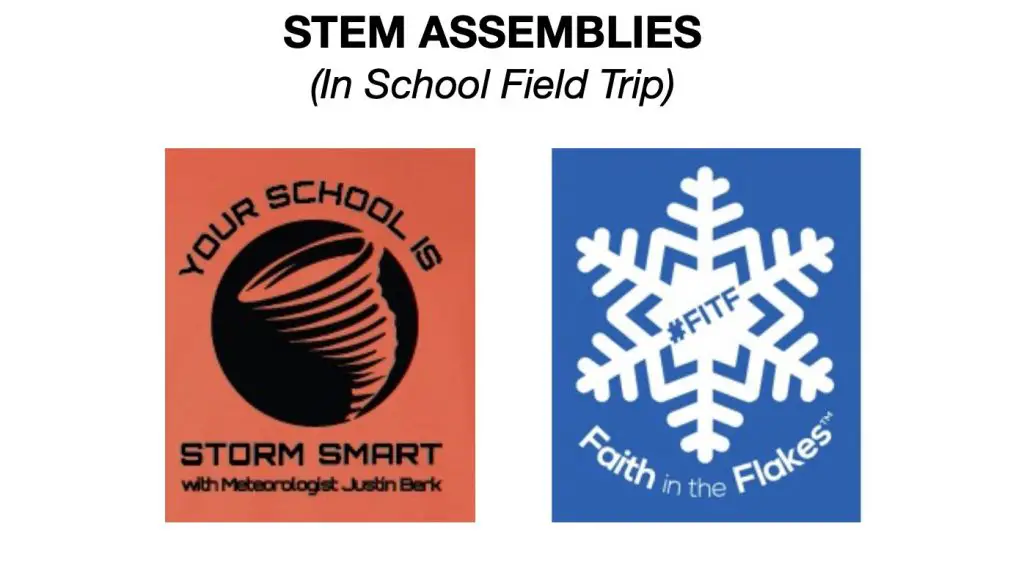Winter Solstice NOT The Shortest Day This Year Plus Seasonal Notes
December 20 2023
Thursday December 21, will mark the Winter Solstice this year. The date is synonymous with the first day of winter, from an astronomical perspective. We already began meteorological winter on December 1st. For record keeping and simplicity, seasons are grouped into full months. So winter is documented from December 1 to February 28 (or 29 in leap years).
That is the day during Earth’s orbit around the sun that the sun’s angle is directed the farthest south all year. The mark is the Tropic of Capricorn at 23.5º South of the Equator. The direct sunlight remains South of the Equator all winter until the Spring Equinox.
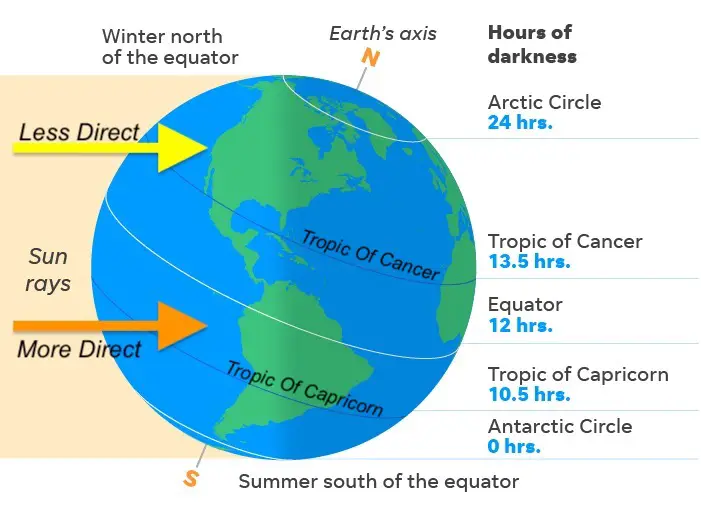
TIMING IS EVERYTHING
This year, the specific time this occurs is at 10:27 PM. With it being so late in the day, there will be no adjustment of additional daylight for an extra day.
So, while the winter solstice is the shortest day of the year, this year, it is not alone! It is technically one of the shortest days. The following day will be as well!
The shortening days will halt, and the length of daylight in Baltimore for example, will be the same both Thursday and Friday:
- 9 hrs 23 min 59 sec
- On Saturday December 23, the daylight will be 5 seconds longer.
- By January 7 the days will be gaining 1 minute of daylight. That will expand each day forward through the spring equinox, and then the pace will slow until the summer solstice.
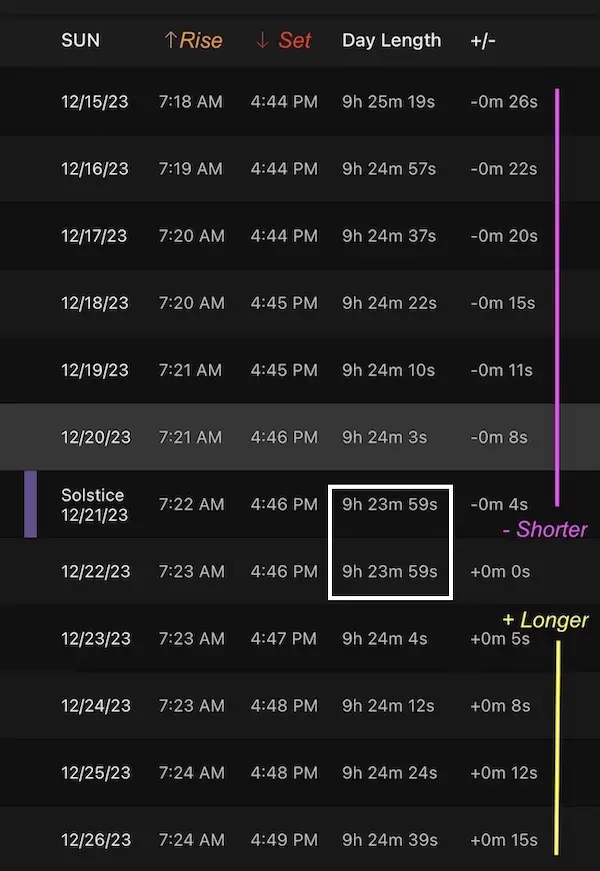
Seasonal Temperature Lag: NOT The Coldest Time Yet
By mid-January, the daylight will be 15 minutes longer than at the winter solstice. However, the days will continue to get colder. It is called the Seasonal Temperature Lag…. Similar to a daily temperature when the highest sun angle can be 12 PM or 1 PM, but the warmest time is a few hours later.
We see this reflected in the climate date. There is a two to three week period in mid to late January considered to be the coldest of the year.
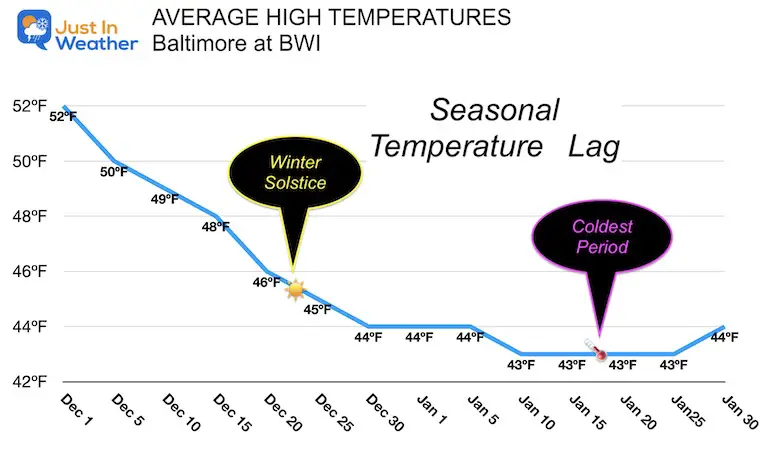
Biggest Snowstorms Later In Winter
We have been talking about this Strong El Niño and the expectation for a snowy winter. Looking at the top 25 snowstorms in Baltimore, 22 of them occurred in January and February.
So if you are bummed the season is off to a slow start, it is actually very common.
Faith in the Flakes. There is plenty of time to go.
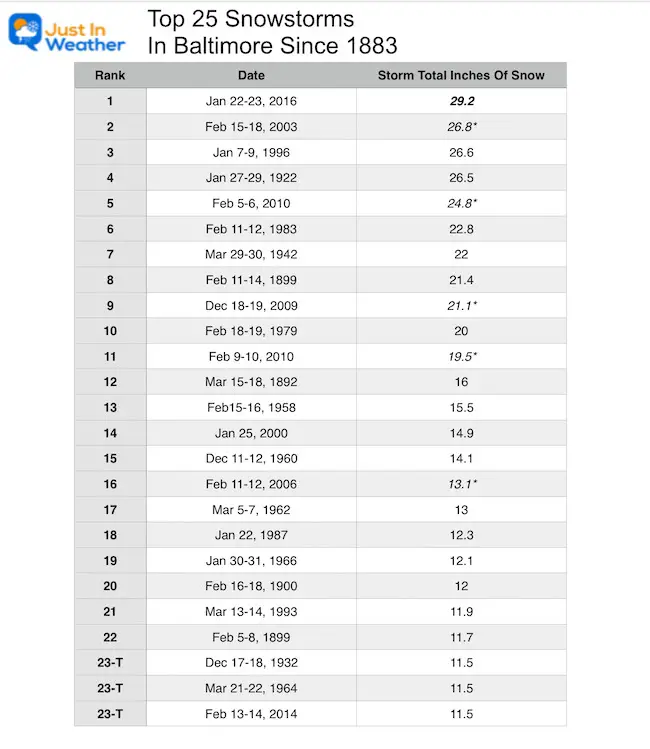
Typical Winter Snowfall By Month
The long-range average snowfall increases in January and February.
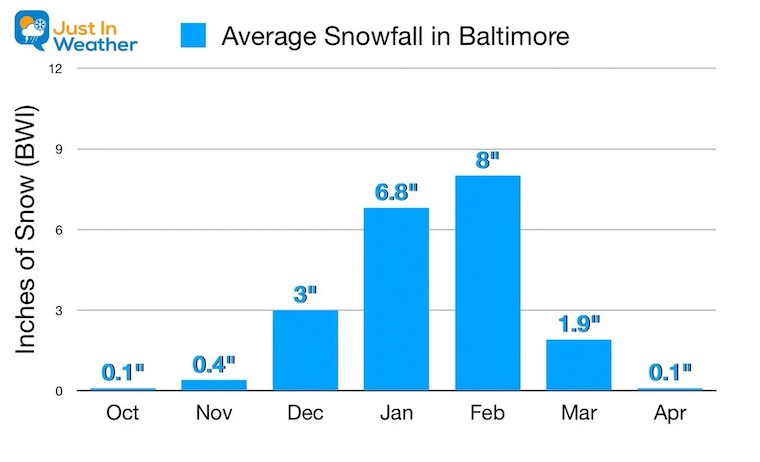
Jet Stream Outlook
December 25 2023, to January 5 2024
The mild Christmas will give way to a progressing cold pattern as we approach and then enter the New Year.
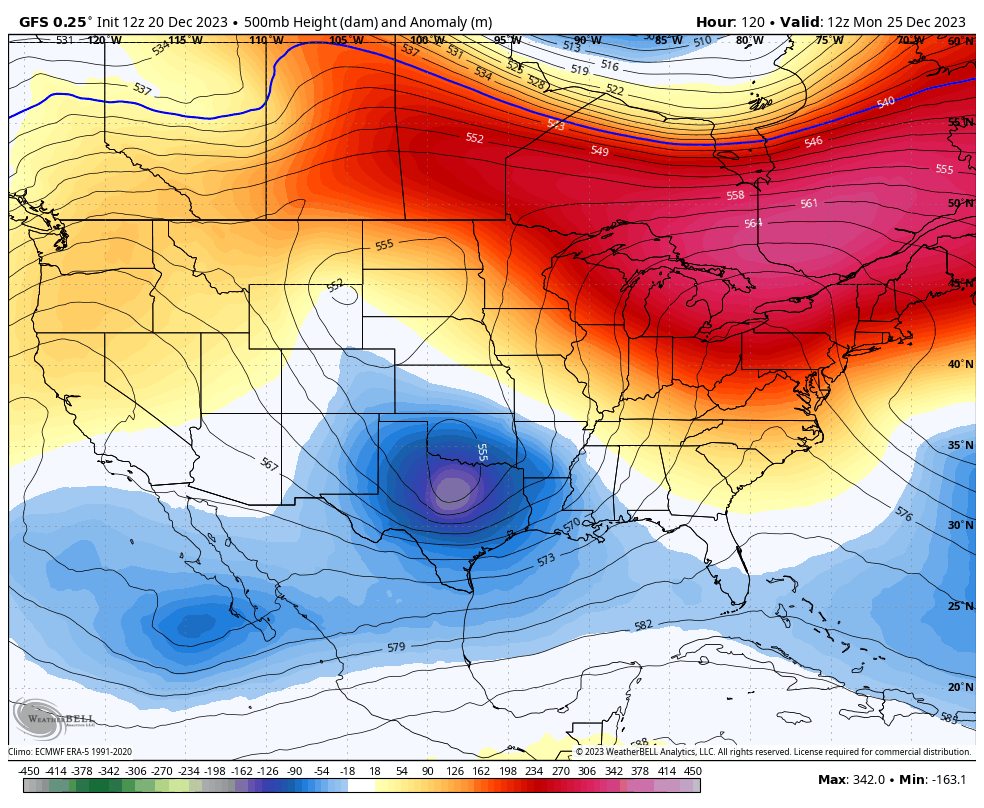
Snapshots
December 28
Next week, we will break the mild pattern through Christmas with this quick trough and cool down.
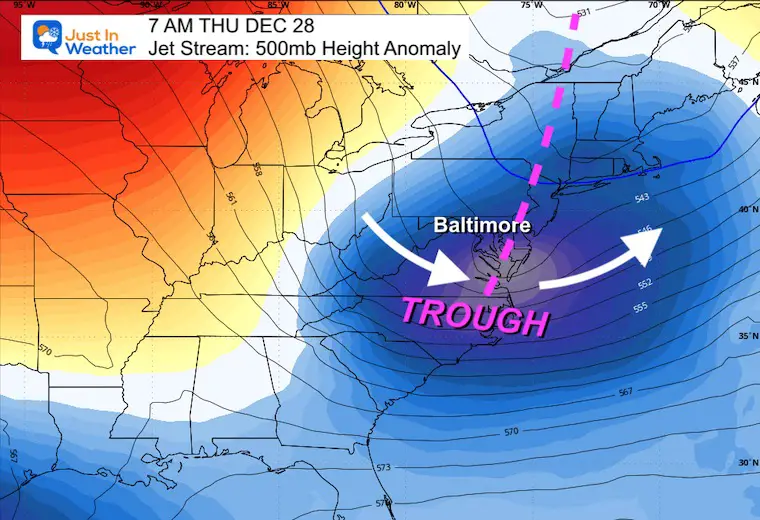
January 5
This is far out there, but early January is looking much colder. I will not play specifics for any storm at this time, as lots can change. But the atmosphere will be turning more favorable in the New Year for winter to show up!
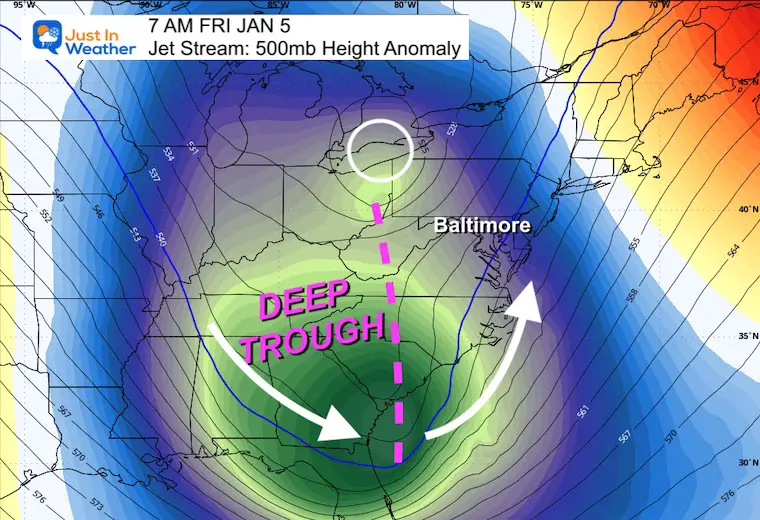
Subscribe for eMail Alerts
Weather posts straight to your inbox
Sign up and be the first to know!
RECENT Winter Outlook Reports:
My Winter Outlook: More Snow
El Niño Winter Updates
Late November: Warm Water Shifts West In Pacific Could Mean More Snow For Eastern US
Computer Models Support East Coast Storm Track
The latest NOAA report is confident in a Very Strong event. Possibly HISTORIC! This refers to the temperatures in the Pacific, with impacts on the US Winter Storm Track.
Winter Weather Folklore: Top 20 and more signals from nature for snow.
Winter Outlook 2024 From Two Farmers Almanacs Return to Cold and Snow
Explore More
Maryland Snow Climate History And Other Winter Pages
Faith in the Flakes Gear
STEM Assemblies/In School Fields Trips Are Back
Click to see more and ‘Book’ a visit to your school
Please share your thoughts and best weather pics/videos, or just keep in touch via social media
-
Facebook: Justin Berk, Meteorologist
-
Twitter
-
Instagram
RESTATING MY MESSAGE ABOUT DYSLEXIA
I am aware there are some spelling and grammar typos and occasional other glitches. I take responsibility for my mistakes and even the computer glitches I may miss. I have made a few public statements over the years, but if you are new here, you may have missed it: I have dyslexia and found out during my second year at Cornell University. It didn’t stop me from getting my meteorology degree and being the first to get the AMS CBM in the Baltimore/Washington region. One of my professors told me that I had made it that far without knowing and to not let it be a crutch going forward. That was Mark Wysocki, and he was absolutely correct! I do miss my mistakes in my own proofreading. The autocorrect spell check on my computer sometimes does an injustice to make it worse. I also can make mistakes in forecasting. No one is perfect at predicting the future. All of the maps and information are accurate. The ‘wordy’ stuff can get sticky. There has been no editor who can check my work when I need it and have it ready to send out in a newsworthy timeline. Barbara Werner is a member of the web team that helps me maintain this site. She has taken it upon herself to edit typos when she is available. That could be AFTER you read this. I accept this and perhaps proves what you read is really from me… It’s part of my charm.
#FITF



